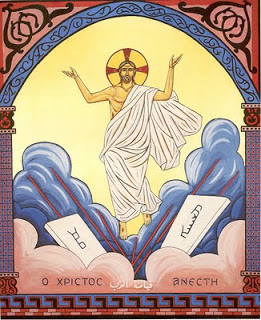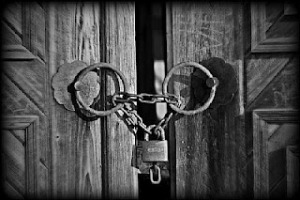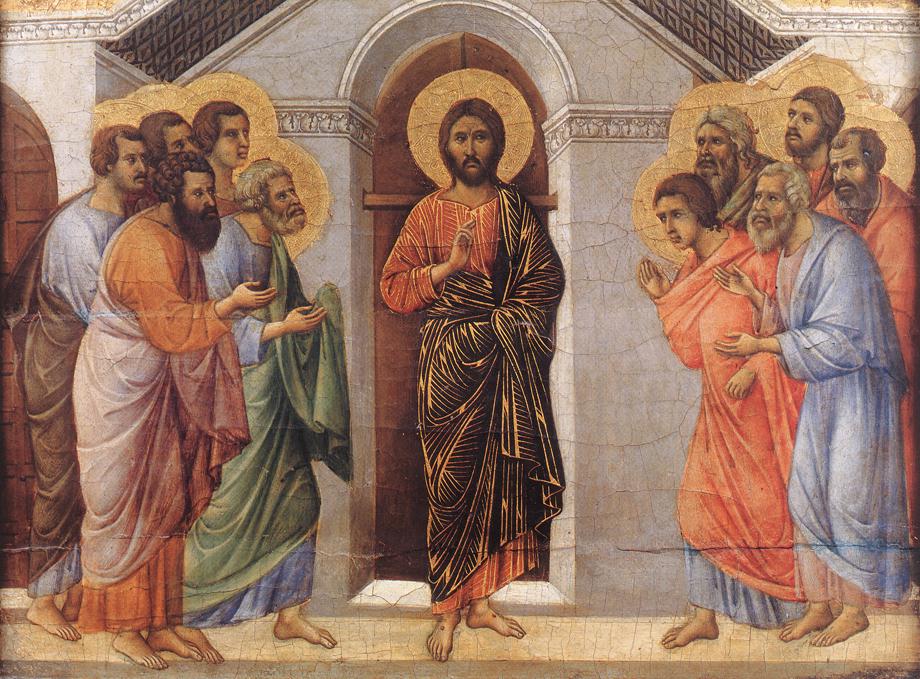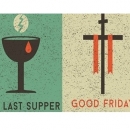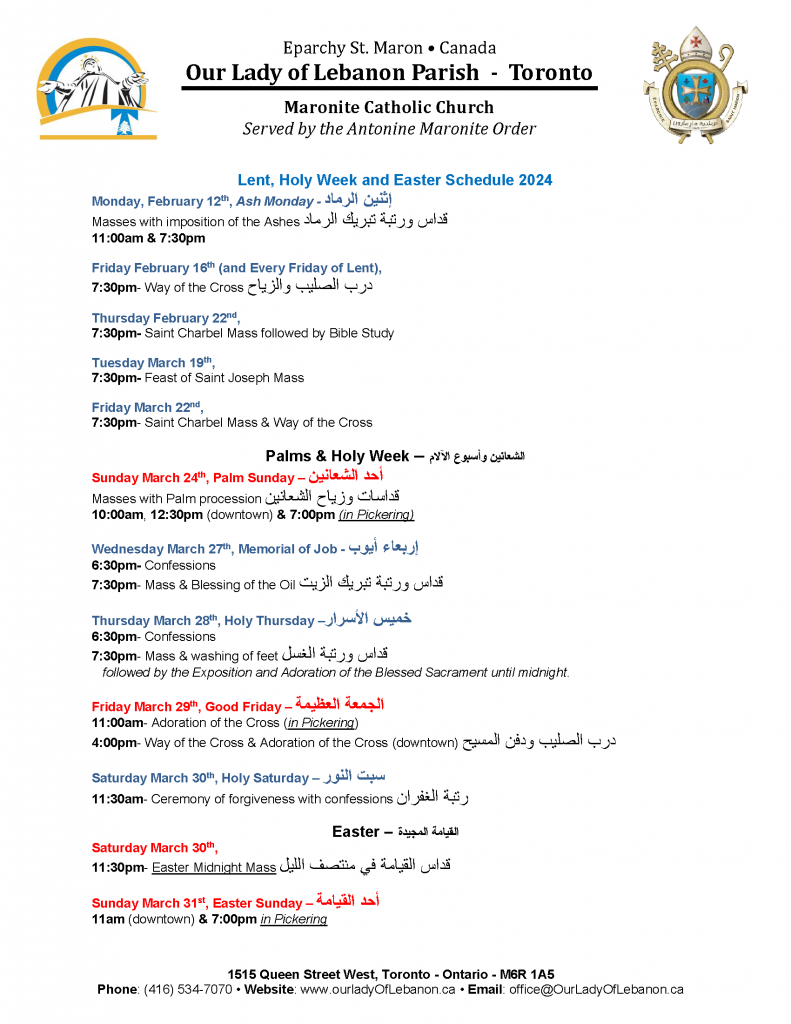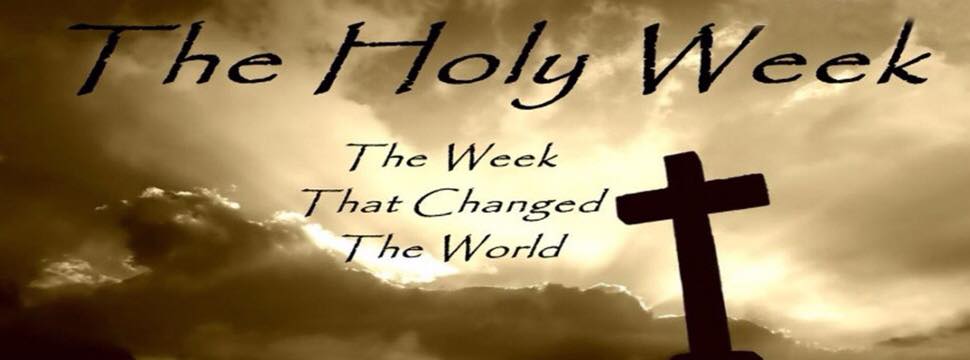| Past Events |
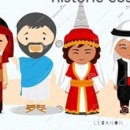
|
St. Barbara Feast Virtual Celebration23. November, 2020Past EventsNo commentsOLOL St. Barbara Feast Virtual Celebration Send your pics |

|
Solidarity with the Victims of Beirut Explosion – How to Help?11. August, 2020Past EventsNo commentsIn response to the horrific explosion that occurred in Beirut, Our Lady of Lebanon church – Toronto is being approached by many generous individuals and groups who wish to help or to organize fundraisers, and asking for our support to send the donations to Lebanon. Help is needed right now! Instead of us collecting the money then sending it later to Lebanon, our recommendation is that YOU DONATE DIRECTLY ONLINE, through a trusted NGO or Charity. Please check the websites of the Charities listed below, then decide which one you will feel more comfortable supporting. However, in case some people or fundraisers collect cash donations, and prefer to send the funds to Lebanon through our church, we will transfer the money as soon as possible to one of these listed charities. God bless Lebanon! God bless you all!
Canadian Red Cross – (Lebanon Humanitarian Needs Appeal) https://secure.redcross.ca/registrant/donate.aspx?eventid=311494 * CANADIAN TAX RECEIPT PROVIDED
Canadian Red Cross with The Dableh Family Foundation. The Dableh Foundation will match up to $250,000 raised through Canadian Red Cross. Donate here: http://www.redcross.ca/Lebanon/Dableh * CANADIAN TAX RECEIPT PROVIDED
Lebanese Red Cross (http://www.redcross.org.lb/) Donate here: https://www.supportlrc.app/donate/donate_guest.html
Caritas Lebanon (http://www.caritas.org.lb/) Donate here: http://www.caritas.org.lb/get_involved/donate/
ICF – International Christian Foundation (https://federationicf.org/) Donate here: https://federationicf.org/donate/ * CANADIAN TAX RECEIPT PROVIDED
Solidarity Among Lebanese (http://www.lebanesesolidarity.org/) |

|
You also are Witnesses13. July, 2020Past EventsNo commentsThe Spirit, descending upon the Apostles, gave them the necessary light and strength to teach the nations and to proclaim Christ’s Gospel to them all. When we were baptized, we received this same Holy Spirit, who made us disciples, witnesses and apostles. As happened in Jerusalem on the First Pentecost, in every Age, Christ’s witnesses, filled-with the Holy Spirit, have felt encouraged to reach-out to others in order to express the marvels God has accomplished. Invigorated by the Gift of the Spirit, the Church has always been aware of this Duty, and has faithfully proclaimed the Gospel message in every Time and Place. She has done so with respect for the dignity of Peoples, of their Culture, of their Traditions. For this very reason, the Gospel must not be imposed, but proposed, because it can only be effective if it is freely-accepted and lovingly embraced. Let’s all remember that we are Christ’s witnesses, and let us proclaim His love to all the people around us. |

|
Easter Popular Traditions in Lebanon and the Middle East13. April, 2020Past EventsNo commentsEaster in Lebanon, as well as among other Christians in the Middle East, is celebrated by local Christian communities (Maronite Catholic, Greek Orthodox, Melkite Catholic, Armenian Orthodox, Syriac Catholic, Armenian Catholic, Syriac Orthodox, Roman Catholic, Chaldean, Assyrian, Coptic, Protestant). One of delicacies prepared for Easter in Lebanon is Maamoul. Maamoul are little cakes that are made with semolina, sugar, pound butter and water. They are filled with walnuts, dates or pistachios. After baking they are covered with some icing sugar. 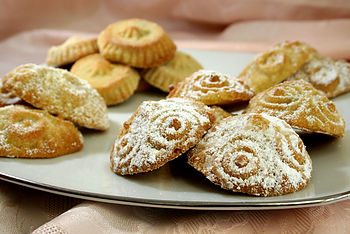 Maamoul Making Maamoul is some sort of family business. Each family member prepares a different part of the cake such as decorating the cake tops, women preparing the dough. Finished cakes are laid out on trays or white sheets. The next day they are taken to the bakery to be baked. When going to church on Palm Sunday (Shaa’nini in Arabic) people wear new clothes or at least a new pair of shoes. A ceremony called shanineh is held then. Shanineh is a procession, led by priest and his helpers, in which the children holding candles are carried around the church on their parents’ shoulders. The candles are decorated with ribbons and flowers. On Lent and on Good Friday people fast. On these days meat and animal products are not eaten. On Fridays during Lent period special church services are organized. They suppose to remind people of different stages in life of Jesus Christ. On Good Friday the statue of Christ is taken off the altar and put in a coffin. That coffin is then carried around the church in a procession. The statue is left in the coffin during Easter Saturday. At the midnight between Easter Saturday and Easter Sunday special Easter mass is held. What’s happening on Easter Sunday? Let’s take for example the Orthodox Christians of Lebanon. They attend a church service on Easter Sunday morning or midnight mass between Holy Saturday and Easter Sunday. On Easter Sunday, many families make a special lunch which includes turkey or chicken stuffed with nuts and served with rice. The afternoon is spent visiting friends and family members. Finally, on Easter Sunday people greet by saying Al Massih Qam (Jesus is risen from the dead). The other person answers Haqqan Qam (He has truly risen). |
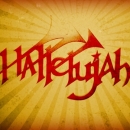
|
The Glorious Resurrection13. April, 2020Past EventsNo commentsAl Masseeh.. Qaam! Haqqan Qaam!
“Today the Church and her children rejoice for our Lord and Savior has risen from the dead. The resurrection of the Lord is the central event of our salvation, the one that gives meaning to who we are and what we do. Every celebration of the Eucharist and the other mysteries refers to it as the source of inspiration and meaning. The resurrection is the feast of feasts, the queen of all feasts. Originally the Church celebrated only one feast, the resurrection itself, which was recalled and renewed each Sunday at the celebration of the Divine Mysteries. Soon, however, it began to recall the Passover of the Lord and his victorious resurrection in a special way once a year, in addition to the weekly commemoration of the resurrection. Eventually this annual celebration of the Lord’s resurrection was prepared for by a season of prayer, fasting and penance – Lent, and the feast itself was extended for fifty days. Today’s feast is one of joy and peace; the joy and peace that flow from the Lord’s resurrection are expressed today by the rite of peace which follows the gospel in the Divine Mysteries. The cross is removed from the tomb where it has rested since Great Friday and is draped in white. It is carried through the Church accompanied by hymns of praise and joy. The priest solemnly blesses the congregation with the glorious cross and then presents it to them that they might adore it. By his living cross Christ has saved us from going astray and given us a way to heaven. Through the cross peace and harmony reign among God’s people and we are led to perfection. And so filled with peace and with joyful hearts we proclaim: ‘A glorious morning has dawned, and night has fled Light has conquered, and night has been destroyed.’ Season of the Glorious Resurrection: The Church celebrates the Resurrection of our Lord as the feast of feasts. After being plunged into the darkness of the crucifixion and death of Jesus we are now filled with the light of the resurrection. The cross which was the instrument of death has now become the glorious beacon which enlightens the world. In order to express its joy the Church extends the celebration of the resurrection for a week of weeks, that is, for fifty days. The Sundays of the Season of Resurrection are as follows: Resurrection of the Lord- New Sunday: First Sunday of Resurrection- Second Sunday of Resurrection- Third Sunday of Resurrection- Fourth Sunday of Resurrection- Fifth Sunday of Resurrection- Sixth Sunday of Resurrection: Sunday after the Ascension- Pentecost. The Season of Resurrection begins with the feast of the Resurrection and ends with the gift of the Holy Spirit on Pentecost. On the fortieth day of this season (the Thursday after the Fifth Sunday of Resurrection) the feast of the Ascension of the Lord is celebrated.” |
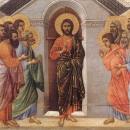
|
Living Easter with “Locked Doors”13. April, 2020Past EventsNo comments
This year, we all celebrated Easter differently, with closed and locked churches and no private prayer in any church building. While this is certainly a painful reality of the pandemic and a measure taken in the best interest of public health, it is a difficult thought to grasp. However, for Christians, this story of locked doors should certainly sound familiar: “The doors were locked” (John 20:19). These words begin the telling of Jesus Christ’s appearance as Risen from the dead to Saint Peter and the Apostles. The story continues on with Jesus breathing on them saying, “Receive the Holy Spirit” (John 20:20). Wherever the Holy Spirit is, there is sanctification, grace, renewal, and abounding faith, hope, and charity. In the present day too, with locked doors, Jesus Christ is indeed breathing on us the gift of His Holy Spirit and calling us to renewal in His Spirit. Despite doors being locked, we are called to live and look towards the Resurrection of the Lord seeking renewal. With locked doors, the Holy Spirit is stirring about the grace of renewal for the Body of Christ that longs to physically and sacramentally gather together.
Perhaps these are some ways Jesus is instructing us in the ways of renewal and calling us to “Receive the Holy Spirit” in times of locked doors, social-distancing, and self-quarantining:
Through these difficult times as we are “locked out”, we must persevere in our journey with the Lord. May we unite our sadness, struggles, and difficulties with those seriously affected by the Coronavirus and with Jesus Christ in His suffering. May we be open to the ways in which Jesus is indeed breathing on us and calling us to renewal in His Spirit at the core of our faith: the journey to and through the cross to the glorious Resurrection. (Article by Andrew Rubinich, published on Catholic-link website: https://catholic-link.org/the-doors-were-locked-the-paschal-mystery-in-light-of-covid-19/) |
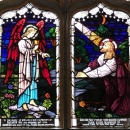
|
The Holy Week in the Maronite Church6. April, 2020Past EventsNo commentsThe Holy Week in the Maronite ChurchWe are entering the most important week of the liturgical year, the week that prepares us to live intensely the Christian Mystery of the Death and the Resurrection of our Lord Jesus Christ: the Holy Week. The Holy Week is the memorial of those great days of our salvation when Jesus Christ died on the Cross to redeem and save our human race and give us the opportunity to share in His Divine Life. Lent was for us the time to reflect more and meditate upon our lives so that we can renew ourselves and prepare to live again the mystery of our salvation. Now we are approaching the Holy Week and Easter Sunday and celebrating the death and the Resurrection of Our Lord. On Palm Sunday, the children and people have received Jesus Christ as king. They welcomed Him into their city, Jerusalem. They proclaimed “Hosanna to the Son of David; blessed is he who comes in the name of the Lord; hosanna in the highest”. Jesus found an ass and sat upon it, as is written: “Fear no more, O daughter Zion; see, your king comes, seated upon an ass’s colt.” He was so humble and so meek. The King of the kings, Lord and Master, the Creator of all, born in a manger, entering Jerusalem sitting on a donkey, and finally crucified between two criminals. The Holy Week, in our Maronite Church, is considered an independent Liturgical Season inside the Season of Lent. It starts with “Naheero” or the “Coming to the Harbor” on Palm Sunday evening and is over on Easter Sunday. One week seems to be too short to be considered an independent Season. However, the intensity of ceremonies and celebrations, and the deep spirituality found in those old Syriac texts, prayers and hymns in that week, make it worthy to be the most important week of the year. I would like to present very quickly the ceremonies celebrated during this blessed week so that we may understand its importance and realize the importance of our participation in all services. The “Coming to the Harbor” is an old rite of the Maronite Church. It reminds us that Jesus is the Harbor of Salvation. The ship or the vessel, which is the Church, and often compared to Mary the New Vessel of life, reaches the Harbor after the safe journey of Lent. This celebration was originally celebrated on Palm Sunday, in the evening, and opens the Holy Week. It is celebrated outside the Church and is concluded inside the Church after a Candle procession symbolizing Christ the True Light. It does have a whole service of the Word, similar to the first part of the Divine Liturgy, with Hossoyo (Prayer of Forgiveness) and readings of the Epistle and the Gospel. The proclamation of the Gospel on that day is the Parable of the Ten Virgins who are waiting the coming of the Bridegroom. The prayers of Monday, Tuesday and Wednesdays of the Passion Week are called “Sotooro” or Lenten evening prayers. We have a special prayer for every day with a cycle of readings from the Old and the New Testament announcing the death of Jesus Christ as the fulfillment and the achievement of all the promises of the Prophets. Jesus is the Son of God who was delivered to human hands, put to death, suffered and was humiliated for our own sake. Wednesday of the Passion Week is also called Wednesday of Ayoub(Job). Job suffered a lot, and lost his health and wealth, even his sons and daughters, but never cursed God and was known for his patience. He represents Christ who willingly received suffering and death, and committed himself into his Father’s hands. On that day, the Rite of the Lamp is celebrated. Once again, it is an old rite of the Maronite Church. Dough with seven wicks inserted into it, represent the seven lamps envisioned by the Prophet Jeremiah and by John the Apostle in his Revelation. During the celebration, the oil is blessed and all the faithful receive the anointing. Holy Thursday or Thursday of the Holy Mysteries is the first day of the Easter Triduum. On that day Jesus had his Last Supper with his disciples and washed their feet. He commanded them to love each other and follow his example in serving each other. “So when he had washed their feet and put his garments back on and reclined at table again, he said to them, “Do you realize what I have done for you? You call me ‘teacher’ and ‘master,’ and rightly so, for indeed I am. If I, therefore, the master and teacher, have washed your feet, you ought to wash one another’s feet. I have given you a model to follow, so that as I have done for you, you should also do. Amen, amen, I say to you, no slave is greater than his master nor any messenger greater than the one who sent him” (John 13/12-16). After the washing of the feet, Jesus went to Mount of Olives and spent his night there praying to His Father for his disciples and his Church so they may be one as He is one with His Father. On that day, Jesus founded the Sacraments, especially the Sacrament of Eucharist and the Priesthood. It is the Thursday of the Priests par excellence, those servants of the Holy Sacraments and administrators of the Holy Eucharist in memory of Jesus Christ, in memory of His death and Resurrection until he returns. The custom of that day was to visit seven Churches, symbolizing the seven Sacraments, and meditating in each Church upon one of the Sacraments. This custom started first in Rome, where Christians went to visit seven Churches built upon Seven Hills of Rome, to honor the tombs of the first Christian martyrs and disciples, especially the tombs of Peter and Paul. This custom still in existence in our parishes and churches in Lebanon where thousands of people go in procession from one Church to another to visit the Blessed Sacrament exposed usually after the ceremony of the washing of the feet until the morning of the next day, Good Friday. The Blessed Sacrament is exposed all night and faithful are encouraged to stay in the church as much as they can praying, meditating upon the Mystery of Salvation, and participating in the “agony of Gethsemane” where Jesus spent his night in prayer before His crucifixion on Good Friday. The Maronite Church fulfills the commandment of the Lord Jesus Christ on that day and accomplishes the service of the washing of the feet. The priest, acting in persona Christi, which means in the person of Christ, washes the feet of twelve of his parishioners showing the mystery of love and compassion and performing like Christ the act of ultimate humiliation actually reserved to the slaves who were entrusted with this task to wash their master’s feet. Jesus gave himself as an example to follow, and performed that act of humiliation to fulfill the prophecies of the prophets as the Suffering Servant or slave, of whom spoke the prophet Isaiah (Is 53:1-11). Good Friday is the greatest day of the year. Jesus was crucified and put to death. He paid the full price of our salvation: his life. He is the Son, the only begotten Son, the inheritor. In Him, through him and because of him we became sons and children of Our Father, inheritors of the Heavenly Kingdom and of the Eternal Life. Our Maronite Church invites us on this day to pray and meditate upon the mystery of Salvation: the living death of our Lord which provides salvation of our souls and Eternal Life. Jesus freed us from the impediments of sins. He bore our infirmities and endured our sufferings. “There was in him no stately bearing to make us look at him, nor appearance that would attract us to him. He was spurned and avoided by men, a man of suffering, accustomed to infirmity, one of those from whom men hide their faces, spurned, and we held him in no esteem. Yet it was our infirmities that he bore, our sufferings that he endured, while we thought of him as stricken, as one smitten by God and afflicted. But he was pierced for our offenses, crushed for our sins, Upon him was the chastisement that makes us whole, by his stripes we were healed. We had all gone astray like sheep, each following his own way; But the Lord laid upon him the guilt of us all. Though he was harshly treated, he submitted and opened not his mouth; like a lamb led to the slaughter or a sheep before the shearers, he was silent and opened not his mouth. Oppressed and condemned, he was taken away, and who would have thought any more of his destiny? When he was cut off from the land of the living, and smitten for the sin of his people… Therefore he was given his portion among the great, and he shall divide the spoils with the mighty, Because he surrendered himself to death and was counted among the wicked; And he shall take away the sins of many, and win pardon for their offenses” (Isaiah 53). On Good Friday, two ceremonies are to be celebrated. The first Celebration is the “Signing of the Chalice” called also “the Liturgy of the Pre-Sanctified”. It is a celebration of the Divine Liturgy with no Words of Institution, which are the center of every liturgy. On Good Friday, the only sacrifice is the sacrifice of Christ, who offered himself to his Father. In fact, every Liturgy is a memorial of the sacrifice of the Cross, the Death and the Resurrection of our Lord Jesus Christ. However, on Good Friday Christ himself is the sacrifice, the ultimate and the perfect oblation. During the ceremony, the priest invokes the Holy Spirit to descend upon the chalice placed at the altar and make it the Blood of Christ to be given during the communion with the hosts consecrated the night before in the Liturgy of the Holy Thursday. The most important moment of this Liturgy is the procession with the Blessed Sacrament placed over the head of the priest reminding him his day of ordination, when the Bishop handed over to him the celebration of the Eucharist and entrusted to him the service of the people of God. The second ceremony is the Adoration of the Cross celebrated in memory of the death of Jesus Christ crucified on the “wood of shame”. Jesus was crucified between two criminals. One of them, on the right, repented and won the Kingdom. He entered with Jesus the kingdom prepared for him and for all believers since the foundation of the world. He is the perfect example of repentance. Even at the last minute, Jesus would accept our repentance. He is willing to forgive us and give us new life. During the ceremony, while the priest is reading from the Gospel of Luke the crucifixion of Jesus, the deacon or the server will light the candle placed to the right of the Cross to symbolize the deliverance of the criminal on the right. Many Christians during that day bring some flowers to honor the Holy Cross. All flowers will be put into the shroud that will be laid in the tomb prepared especially for this day. After the Ceremony, the cross is buried until Easter Sunday. Saturday of the Light is the last day of this Holy Week, and subsequently, the last day of Lent. It is the day the Lord had chosen to enter the tomb and to visit the Dead in their tomb. This day is a non-liturgical day. There is no Divine Liturgy that day before Vigil or Midnight. However, a beautiful ceremony is to be celebrated during that day: “the Prayer of Forgiveness”. It is an old prayer of the Maronite Church and all the Syriac Churches that celebrate the forgiveness won by the death of Jesus Christ. Saturday of the Light is the day of forgiveness par excellence. All Christians are invited to confess their sins during that ceremony and beseech forgiveness. Confessions are heard individually, and absolution is given to all those who confessed their sins. This ceremony finds its true meaning in the forgiveness won by the death of Christ and the personal participation of each faithful and the confession of his sins. The end of the liturgy announces already but not yet the Resurrection of Christ, because where forgiveness and peace are, Christ is raised from the Dead, and so we are. The Vigil of Easter is the night before Easter spent in prayers and praises of the Resurrected Christ, and was the perfect time to restore the backsliders to faith and administer Baptism to new catechumens who prepared themselves during all Lent with prayer and fasting. Our Maronite Church shares this tradition with the Roman Catholic Church. This is a common heritage for all Eastern and Western Churches. However, one of the most important ceremonies and celebrations was the celebration of Easter at Midnight, the first hour of the day. The ceremony of Easter is the Rite of Peace. Jesus Christ is the King of Peace. By His Death and His Resurrection he brought peace to earth. Saint Paul wrote in his letter to the Romans: “Therefore, since we have been justified by faith, we have peace with God through our Lord Jesus Christ, through whom we have gained access (by faith) to this grace in which we stand, and we boast in hope of the glory of God. Not only that, but we even boast of our afflictions, knowing that affliction produces endurance, and endurance, proven character, and proven character, hope, and hope does not disappoint, because the love of God has been poured out into our hearts through the holy Spirit that has been given to us” (Romans 5:1-5). The Rite of Peace is celebrated at Midnight Liturgy and/or Easter Sunday morning during the Divine Liturgy when the priest blesses the congregation with the Cross. Easter Sunday is the day of Peace. May the Peace of our Lord Jesus Christ Risen from the dead be with you all: “In the foreknowledge of God the Father, through sanctification by the Spirit, for obedience and sprinkling with the blood of Jesus Christ: may grace and peace be yours in abundance (1 Peter 1:2). Today’s theologians and researchers are discovering the profundity and the richness of our Eastern Tradition and they are teaching it in all western and European schools and institutions of Philosophy and Theology… I hope that this brief description and explanation of the theology and the spirituality of the Maronite Church all through the Holy Week will increase in your hearts the love of the Church and participation in all her ceremonies, liturgies and prayers of this blessed week. I hope that you understand better why this week is so important, and why it is necessary to learn more and more about our Maronite Tradition and our Eastern Catholic Churches. The more you discover the richness of our Syriac Tradition, the more you will love your Church, and the more you will be proud to belong to the Eastern Churches. |
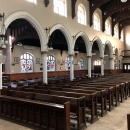
|
Church Open14. March, 2020Past EventsNo commentsOur Lady of Lebanon church Open for Public MassesMaximum 180 people inside the church. Masses Schedule:– Saturday: at 6:30pm– Sunday: 10:30AM & 12:30PM.No Need to Register to attend Mass! We will register the names at the door when you arrive for Contacts Tracing.LITURGY ATTENDANCE SAFETY INSTRUCTIONSAvoid attending church in case of any unfamiliar symptom. Face Mask is highly mandatory inside the church building. Disinfect hands at the entrance. Avoid touching eyes, nose and mouth, for safety. Respect and follow signs and directives. Sit in assigned places inside church. Members of same family may sit together. Holy Communion is given by “HAND” only. No social gatherings before and after church celebration. Return to car immediately after Liturgy (No gatherings outside the church). التوجيهات الوقائية في الكنيسة عدم الحضور الى الكنيسة في حال الشعور بأي عوارض مرض غير مألوفة. وضع الكمامة عند دخول الكنيسة. تطهير اليدين عند مدخل الكنيسة. تفادي لمس العينين والأنف والفم حفاظاً على السلامة. التقيّد بالإشارات وتعليمات المنظّمين. الالتزام بأماكن الجلوس المحددة داخل الكنيسة. يمكن جلوس أفراد العائلة الواحدة معاً. تقبل المناولة المقدسة “باليد” تحت شكل الخبز فقط. تلغى اللقاءات الاجتماعية قبل وبعد كل احتفال. التوجّه مباشرة الى السيارات بعد انتهاء القداس (لا تجمّع أمام الكنيسة).
For updates, please visit our Facebook Page: www.facebook.com/ololgta
Stay safe and God bless!
|

|
MYC 2020 – Toronto ***** CANCELED ********17. February, 2020Past EventsNo commentsCANCELED
We’re very excited to be hosting MYC for a second time, this upcoming May 2020. Every year, hundreds of Lebanese young adults between the ages of 19-35 from all over Canada gather together to learn and celebrate our heritage, culture and faith! This year the convention will be running from May 15th to 17th, 2020. Please visit www.myccanada.com to register and learn more. For more info or if you have any questions, please do not hesitate to contact Patricia Saad (416-451-9108). |






